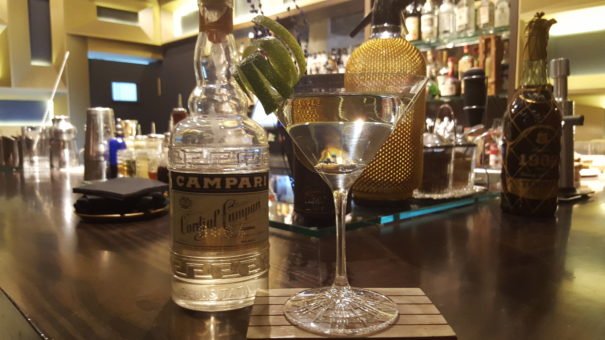
Journalism Won’t Make You Rich, But It Will Get You Drunk

Journalism Won’t Make You Rich, But It Will Get You Drunk
Martinis in Madrid
Journalism may not garner much prestige or money, but it does make you want to drink. Since the time of Fleet Street, the newsroom has never strayed far from the tavern. And so every journalist must seek asylum in a hospitable bar, either to return in the afternoon with a triumphant headline, or to inaugurate the period of clemency—12 hours or so—that begins when the newspaper is finished for the night.
For many years, I was fortunate enough to find refuge at one of these bars. El Padre had the warmth of a slaughterhouse, but we did not need candles on the table or tasteful interior decorating. What we needed were cocktails that would go directly into the bloodstream and a nice cut of meat that perhaps made our cholesterol surge, but for a few hours contributed to keeping our bodies upright. They were unforgettable, endless nights of celebrating before returning home to ask for forgiveness for all our sins.
It was a sad day when El Padre closed. The local owners decided to move to Zamora—one of those Spanish cities where nothing has happened since the year 1200—to grow tomatoes. It was their decision to make; each is master of their own madness. But, for a while, we all walked crestfallen through Madrid, between warm martinis, meat that was too expensive or just bad, and the melancholy of those restaurants that close their kitchens at the ridiculously early hour of eleven o’clock at night. Maybe that’s why it didn’t take long for us to realize that the closing of El Padre had meant something deeper: it had symbolized the last round of our youth.
Literature loves tragic endings; life, however, loves happy endings, or better yet, stories with unresolved endings. After it closed, El Padre reopened, less contemptible and less unrefined, with more ambience and variation. It’s now called Angelita. But it’s still the same place, where lost youth lurks at the bottom of a martini.